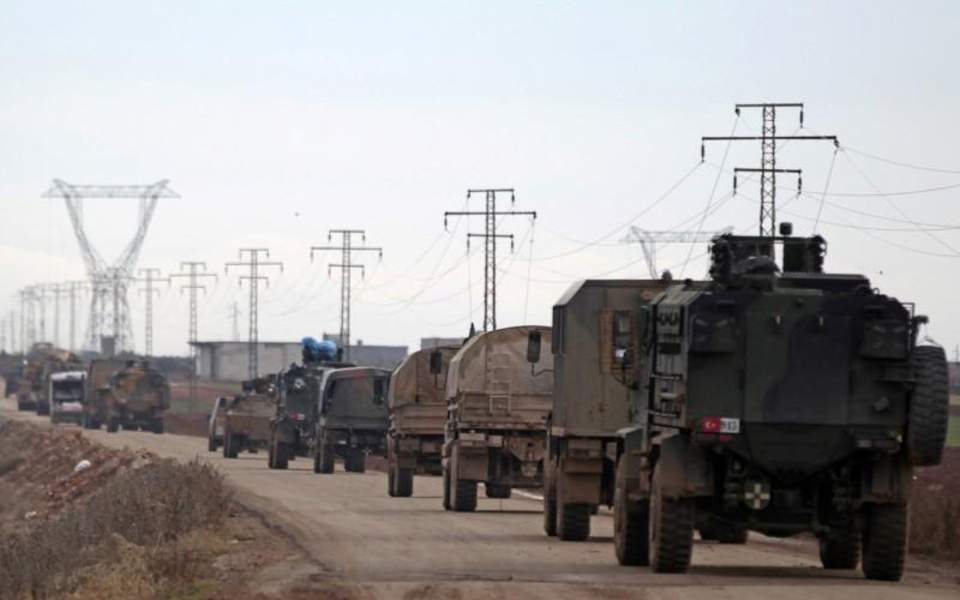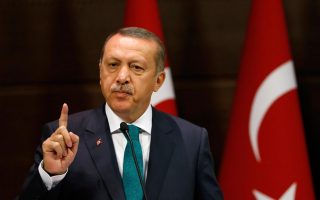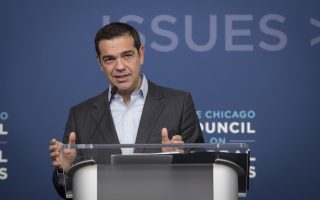Hostile Turkey warns US-backed Kurds, aims to sideline Washington

Simmering for years, the full outbreak of hostilities between American-backed forces and President Recep Tayyip Erdogan's Turkey is now finally at a boil. Turkey, an unreliable NATO ally at best, has again made clear that the US is not welcome in the neighborhood.
President Erdogan just threatened to crush the “terror army” – what he calls the American-armed and supported Kurdish troops assembling on Turkey's Syrian border – by putting the developing 30,000 Kurd anti-ISIS force directly in Ankara’s crosshairs. Erdogan promised to “strangle” this US-backed force “before it’s even born.”
Turkey’s aggressive threats and active troop movements dissolve US hopes for a more stabilized region and further diminish America's already waning influence in the broader Middle East. An increasingly present and embraced Russia and more regionally assertive Iran also further sideline America. The newly developing anti-American power dynamic certainly dashes any plans to “take the oil” from Iraq and Kurdistan, as candidate Donald Trump suggested in 2016.
Badmouthing America and the West has now become political sport in Ankara, with Erdogan calling German Prime Minister Angela Merkel an “enemy” of Turkey and imploring Germans to vote her out of power last year.
While Erdogan is busy undermining Western allies, he has kissed and made up with Vladimir Putin. In 2015, Turkey played chicken with the Kremlin by shooting down a Russian jet fighter at the Syrian border. This tested NATO's resolve and limits at a time when the Western alliance was already being goaded to bloody Russia’s nose over Crimea and the Ukraine war. Instead, NATO refused to take the bait, deescalated the conflict, and knocked down Erdogan’s scheme to get NATO to fight Russia on his behalf. Since Erdogan couldn’t beat Putin, he has joined him.
Now Turkey looks to Russia not as a competitor, but as a strategic ally to achieve mutual Syrian goals that likely include influence, oil pipelines, and diminished American and Kurdish presence and power in the neighborhood. Russia and Turkey may disagree over whether President Bashar al-Assad should stay, but they seem to agree on everything else in Syria. If there is one thing that successive American administrations have made possible in the region, it is helping to create the unholy alliance among Turkey, Russia and Iran.
This has enormous strategic implications for NATO, in part because this anti-American alliance is rapidly developing while Western military presence is dissipating. The Incirlik airbase in Turkey, for example, has always been a key to running sorties and securing the region. But Erdogan’s growing anti-Western stance has already become intolerable for a German military that recently pulled out its planes and moved them to Jordan. America questionably maintains its advanced planes and nuclear-tipped bombs at Incirlik, an airbase that experiences continual Erdogan-inspired nationalist protest against America’s presence.
The struggle over Incirlik is not new. Back in the 2003 Iraq War against Saddam Hussein, the airbase was supposed to be pivotal for supplying air cover for a second battlefront, but the Turks bluffed and backtracked on their support, severely constraining America’s military options and certainly putting more American troops in harm’s way. Erdogan’s just stated plans to strike American-backed Kurdish troops in Syria will bring US-Turkish relations to new lows, if not outright blows.
Ironically, it wasn’t supposed to be like this under President Trump. The fix was seemingly in for a grand bargain aligning and allying the United States, Turkey and Russia to fight ISIS and divvy up the regional spoils. As Trump’s National Security Adviser, Lt Gen. Michael Flynn seemed set to quarterback a pro-Turkish, pro-Russian Hail Mary play. Unlike the Vikings’ Case Keenum-Stefon Diggs 61-yard touchdown miracle, however, Flynn fumbled and fumbled badly. His time on the job was as short-lived as a mayfly’s, though a potential prison sentence could last much, much longer.
One part of the Flynn-Turkey deal appears to have been an agreement to send Erdogan’s former political ally-turned-adversary, the Pennsylvania-residing popular cleric Fetullah Gulen, straight to a Turkish prison cell. Gulen is accused of everything wrong with Turkey today, from being the plotter of the 2016 Turkish coup to instigating ongoing urban terrorism. Gulen as an American-harbored evil-mastermind is Erdogan’s perfect foil.
Now that the Flynn-flam man is gone, a Gulen extradition is unlikely. Erdogan is livid, looking for leverage and refusing to extradite anyone else back to America, saying he “has given the United States 12 terrorists, so far, but they have not given us back the one we want.” The Turkish president’s nationalist bluster plays well at home as he builds both his anti-American credentials and his case for absolute power and authority over Turkey.
Jailing journalists, bullying neighboring countries, turning on allies, and empowering homegrown militias and individuals to wantonly terrorizing Turkish citizens and institutions deemed enemies of the people may be some of the reasons Freedom House this week downgraded Turkey’s designation from a “partly free” to a “not free” nation.
The prospect of Turkish troops free-firing on American-allied and supplied Kurds in Syria, where American military advisers might also be present, will put two NATO allies in the awkward position of opposing each other. With allies like Erdogan, who needs enemies? As Turkish Foreign Minister Mevlut Cavusoglu put it, US-Turkey ties may get “irreversibly harmed.” This never turns out well.
* Markos Kounalakis, PhD is a senior fellow at Central European University and visiting fellow at the Hoover Institution.





